The Christine Jensen InterviewCanadian Jazz saxophonist Christine Jensen is another product of Nanaimo, BC flourishing school jazz programsBy Jim Dupuis
JD: What I'm going to do is get you to tell us about your background. I know that you grew up in B.C. and maybe you could tell us a bit about that. CJ: I was born in Sechelt, B.C. and when I was about five years old I moved to Vancouver Island and we settled there, just south of Nanaimo in Cedar, B.C. There was a nice little music program starting from when I was in grade one that went through that school district of Nanaimo and that is what gave me a really great foundation on just making music. I guess, when I got into music I started playing the saxophone and at the same time I took French immersion. My parents were pretty good at getting me culturally aware while living in God's country--paradise. Where do you find jazz in that? You know, my mother also had a great record collection and she played really wonderful piano and she was also a piano teacher, so she also made certain that myself and my two older sisters, Ingrid and Janet had piano background as well as taking part in a lot of school education music programs. Then in grade six I started the saxophone in the band program and after that it just kind of unfolded through the music program in Nanaimo. JD: What an amazing number of wonderful musicians came out of that program. You and your sister Ingrid, Diana Krall, I think Phil Dwyer ... It's just unbelievable that a place that small would have so many come out of it. Are there any teachers that stood out other than your mother? CJ: There were a few actually. I was given this golden teacher rod, because each teacher I had gave me something special, from my Kodaly teacher in the music program to my choral teacher and then in grade eight when I entered junior high, that's when we started with the jazz band stuff. There were people ahead of me doing so well, like Diana Krall and Ingrid. JD: That's good to hear. It's amazing; the number of wonderful players, teachers and composers that have come out of that region and it's good to hear that it continues. CJ: I mean I just saw another note. I was going through a few festival programs, like the Montreal Jazz Festival and I just saw that Dave Gogo, who is a blues guitarist that was in grade nine combo with me. JD: Really. CJ: He played bass and we played all blues. This was the kind of thing that went on and we can all jam respectively on something musically. CJ: He also introduced me to blues--Stevie Ray Vaughan and Jimi Hendrix a bit, and it was so easy to access this stuff because of this network within a smaller town. JD: So you are quite a composer--from what I've seen from your own CDs and some of your sister Ingrid's CDs that you have quite a few compositions on. Christine, in your case, is composing a form of storytelling? CJ: Ya, I think I kind of look at it like short stories. I'm a big fan of the short story actually, especially Alice Munro and just creating a new background or a new introduction on something and just finding surprises which come out of it. I suppose, you know I'm on tour right now with my musicians and they are fabulous and every night I say, "Aren't you sick of this music yet? We're playing it every night." But each time within these same stories we tell a new story each time we play. So, my music is able to do that. It gives them as well as myself as an improviser a sort of template to work from and create something new each time. So, in that sense I am a composer (laughs). I don't know how to describe it but it's kind of crazy. JD: No, it makes sense. I like your liner notes. You are basically explaining the story and the listener can take it from there. Like your players improving, listeners can sometimes improvise in their heads and go with the story or have another one going. It happens to me all the time and it can be pretty neat. Now with composing, do you have structured writing habits? Do you have to get up at a certain time or ... ? CJ: No, I wish it was that easy (laughs). I tend to go through phases more. I'm either on the road or I find some of the writing I do is when I know I have a project ahead of me and deadlines of course, just like any other creative thing that we make our living off of. JD: So Christine, what state of mind do you need to be in. Do emotions play a big deal? CJ: Umm, compositionally? JD: Ya. CJ: It's just clearing my head of clutter. Which is everything around me. That's when I find I check myself into residencies some times (laughs). I sound like I'm checking myself in. I'm hoping to go to Banff at the end of August and if I don't get in then I'll be looking at it six months from then. But I do quite a bit of writing at home as well and it's usually when I've stopped doing everything else and really focus on that. JD: Well as a musician you bring a lot to the table. You are a multi-instrumentalist. From what I can tell you play alto and soprano saxes, and flute and you are a composer. CJ: (laughs) Struggling. JD: What do you regard as your central strength as an artist? CJ: You know it's funny that you are mentioning all that. I think my strength was that I was given so many tools to grab on to. I really wanted to be a pianist at one time. I wanted to be in a piano trio, Oscar Peterson or Bill Evans, and I listened to them, so those influences around me are my strength--that people fed me. Maybe it separates me a bit. I didn't just become a saxophonist who wanted to be technically good and transport other people's music. I decided to mix the voices and try to--I guess through sheer effort try to find my own voice and that comes with composition and the piano helps me a lot with the background I had in that. JD: Now here's a question I asked your sister Ingrid. She's a wonderful trumpet and flugelhorn player. She was on my show a few month's back and we had a nice conversation. Could you comment on the status of women in the jazz world? CJ: I think it's pretty good right now. The levels are rising. It's a--gosh it's such a weird topic. It's not anything that I try to think about too hard, but the more we get mentored and the more women that are role models for these younger women and I'm seeing it in the education system and getting them to get through their late teens and into their early twenties and be able to stand up to the challenge of this music without being distracted, because women have a different schedule than men in their lives and jazz is a pretty big one single focus career. And finding another way to deal with that too, you know there aren't a lot of women instrumentalists in this music and especially at the very top of the heap. You know that Ingrid is definitely carving out a path that other young women can see. "She can do it. We can do it." JD: Yes having role models is definitely one of the answers to getting women moving up in the jazz world. CJ: Yea. JD: It was said that at one time if a women showed up to a jazz gig the man would say that the piano was over there. CJ: ... or "Are you the vocalist." I still get it all the time. It's just a stereotype that happens. It's a visual stereotype. There's also a feminine personality that could come out in the music. I mean that I don't think of it that way when I'm playing. There are men instrumentalists as well who have a more feminine personality in their playing as well. So, you know it's a big mixture of stuff that needs to happen for it to progress. Whether we see it go 50-50 ... I don't know. JD: Both of you are doing a good job at being role models and wonderful musicians. And speaking of wonderful music, in front of me is a CD that you have out. It's called Look Left. Sounds like you had a tough gig--sitting in Paris overlooking the Seine River, sitting at a piano (laughs). I'm so jealous. CJ: It was so horrible (laughs). JD: So tell us about that CD. CJ: It's been out for about a year now, but I find that it's new in terms of touring the music that's on it. That again is a process I went through. I wrote a lot of music in one place over a short period of time because I was given a space to do that. You know, you clear your books and go check-in. I could have approached it more as an instrumentalist and gone over there and just tried to play and play and play but I really had the resources around me to write and write and write, so I really grabbed on to that and that record is the combination of all that stuff I did over there turned into that record as well as some newer stuff that's not on there. It just was a magical six months. It seemed like--2002 and it ended the beginning of 2003. It felt like it was the end of a period of my live and I was just getting this stuff out before a whole bunch of other things changed. Not that I knew that was in front of me, but that's what happened. JD: So Look Left is available on your website I imagine? CJ: Ya and on the record label site as well. JD: And the record label is Effendi and your website is? CJ: We have christinejensenmusic.com and it's nearly up and running. I don't know if I'll be selling those CDs directly, but there's a whole bunch of distributors online. I don't know if anybody's noticing it, but their aren't many record stores any more. I'm in Calgary and we come here every two years or every year or so and we walked down the street and we all just about cried seeing that there was no A&B Sound any more. You know it's kind of sad in one sense, but in another sense there's a lot of ways to get music off the Internet, whether you are buying the hardcopies or not. JD: Now Christine, you are involved with another CD that definitely has family connections in it. The group is called Nordic Connect and the CD is called Flurry. You are on it. You are composing and playing with your sister Ingrid and Maggie Olin and Ingrid's husband Jon Wikan and Mattias Welin the bass player. Tells us how you all got together to do this project. CJ: Yes. God, that's a long story. That record just came out last month in the States, especially. We all got together when Ingrid got married to Jon. She introduced me to Maggie Olin, who is the other composer on the recording.Ingrid has known Maggie for 20 years I guess and she lives in Sweden. She’s a composer and pianist and Ingrid had always played me her music and Ingrid had worked a lot together. She said that we had to all get together one of these days and we could make some really interesting music out of JD: Yes, it's a wonderful CD. It's definitely different than your CD. There are different composers obviously. You seem to all have taken a turn composing. But the section about the sea including “Sea Scape” and “Sea Fever” just seem to fit in so well. You sure get the sea feeling from that. So the Jensen family--are you originally from Sweden? CJ: My father is from Denmark and he settled in Canada in the fifties. So we have all of that side of the family over there in Denmark. He's always been very good at keeping up the Danish tradition which is similar to the Swedish tradition, so we have an affinity with all that. JD: It shows. You have an affinity with the musicians. You all fit together really nice and it is another very enjoyable CD. CJ: Thanks. JD: You are having a very, very busy jazz fest season. I saw your itinerary and thought wow--that's just awesome. CJ: Ya, it's been pretty exciting. I'm getting a lot of comments about it. Usually I just go do it and it doesn't wind up quite as well as this, but I'm starting to get more help with my work, which is great, so I'm starting to get things lined up a little better so that there is more work for this band. It is a really exciting quartet of musicians. It's the closest thing I've come to having a conversation with four people at once that makes sense (laughs). So it's fairly exciting. We're having a great time. JD: So near the end of the festival season your are going to be having--I almost said the Jackson family--the Jackson Five--well the Jensen Family are going to be playing down in Kaslo, B.C. (The Jazz Etc. Festival). CJ: The Jensen Five; I don't know the bass player very well, but I'm going to get to know him and it's Ingrid's husband Jon (Wikan) and my husband Joel (Miller) in that group, so we decided to call ourselves The Jensen Five (laughs). It was really funny when I said that and Ingrid said, "That's sounds cool, let's do it." JD: Have you been to Kaslo? CJ: No, but it's so cool though. JD: What they have is this big raft, which is the stage and it's about ten feet out in the bay. It is in front of a natural amphitheatre. People sit there and watch you and they can see behind you and see other people on boats in the water and the natural beauty of the area while you are providing all that great music. It's a neat place. CJ: Wow, I'm looking forward to that. JD: I'm sure you'll enjoy it. Thanks a lot for talking with me, Christine and I hope you get some rest tonight. I can't believe how busy you are, but that's a good thing, too. CJ: Ya, well this trio is going out to do another gig, so I might just go watch them and enjoy listening purely. |
Reviews
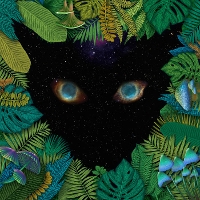
Mngwa
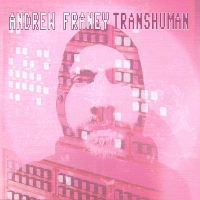
Andrew Franey
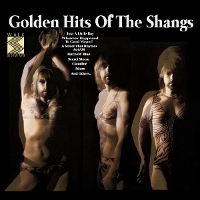
The Shangs

Alex Cuba

Tri Nguyen
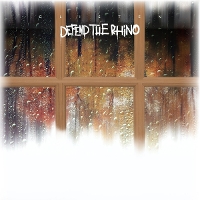
Defend The Rhino

Talltale
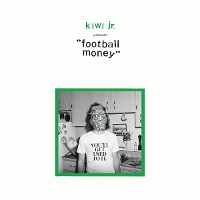
Kiwi Jr.

Plaster

Hyness
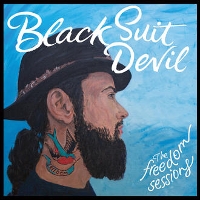
Black Suit Devil
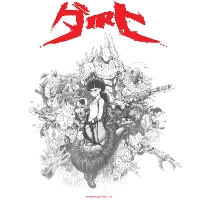
Yamantaka // Sonic Titan
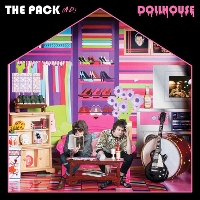
The Pack A.D.
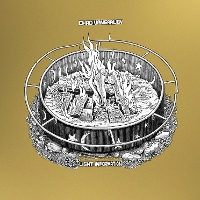
Chad VanGaalen

Potengowski Anna Friederike
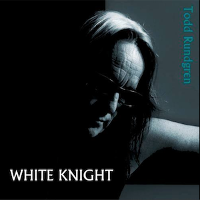
Todd Rundgren

Old 97's
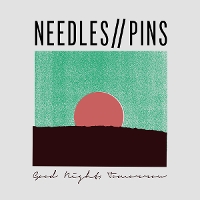
Needles//Pins


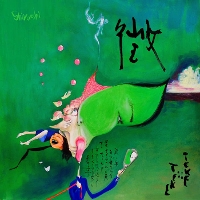
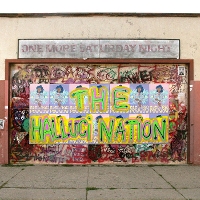
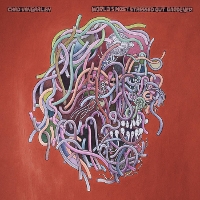
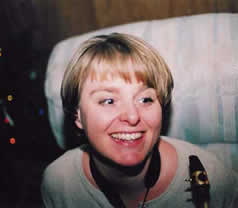
 I didn't just become a saxophonist who wanted to be technically good and transport other people's music. I decided to mix the voices and try to--I guess through sheer effort try to find my own voice and that comes with composition.
I didn't just become a saxophonist who wanted to be technically good and transport other people's music. I decided to mix the voices and try to--I guess through sheer effort try to find my own voice and that comes with composition. 


